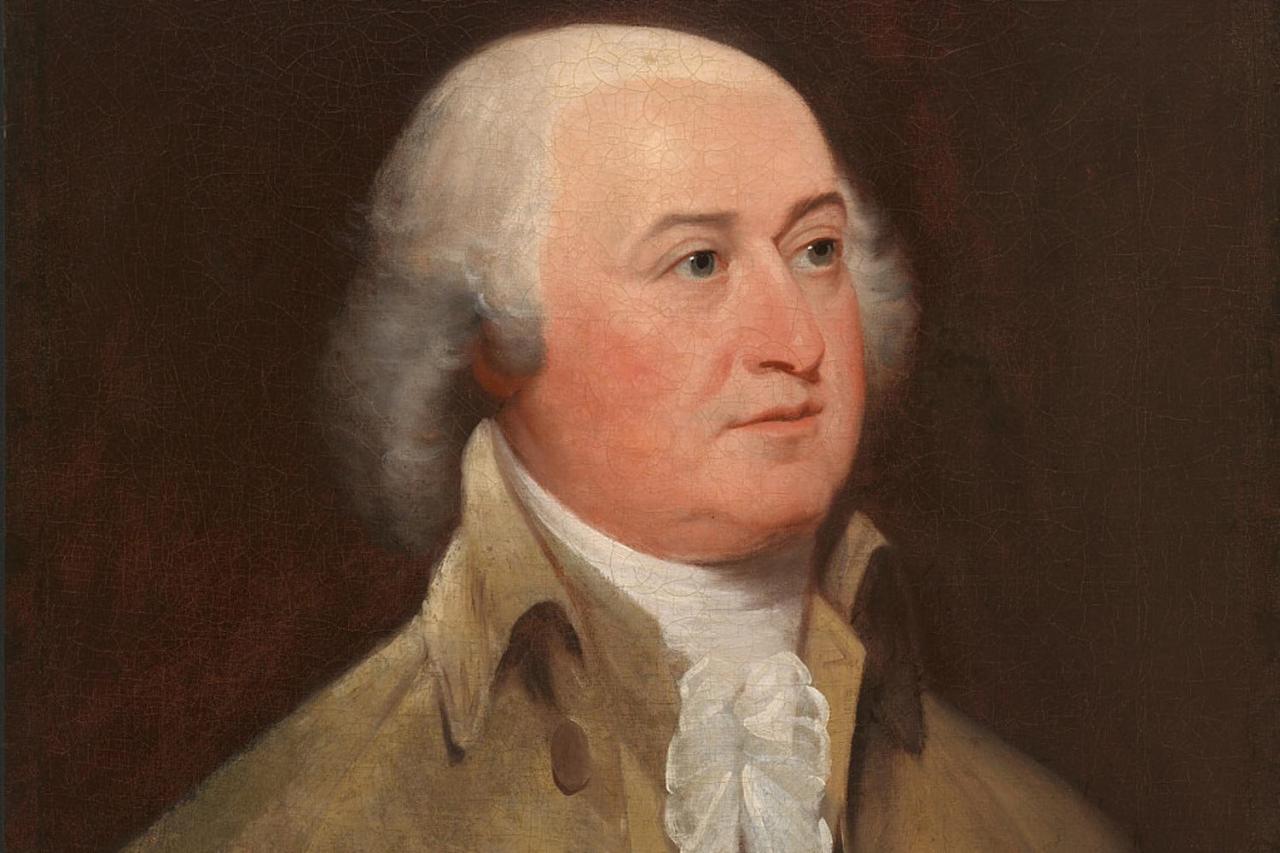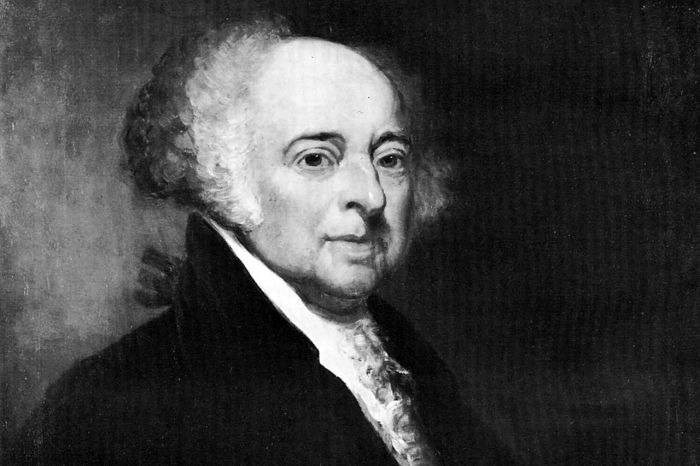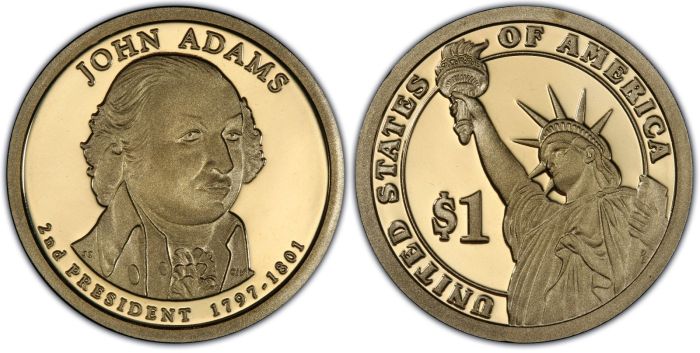Bad things john adams did – John Adams, the second president of the United States, is remembered for his contributions to the nation’s founding. However, his presidency was also marked by a series of controversies and diplomatic mishaps that left a lasting impact on American politics.
From the Alien and Sedition Acts to his strained relationship with Alexander Hamilton, Adams’s presidency was a tumultuous period in American history. This article delves into the bad things John Adams did, exploring the controversies, mistakes, and decisions that shaped his legacy.
Political Controversies

John Adams’s presidency was marked by several controversial political actions that sparked public debate and shaped his legacy. These actions stemmed from his political philosophy, personal beliefs, and the challenges he faced during his time in office.
One of the most significant controversies during Adams’s presidency was the Alien and Sedition Acts of 1798. These laws, which aimed to suppress political opposition and protect the country from foreign influence, were widely seen as an infringement on civil liberties and freedom of speech.
Alien and Sedition Acts
- Passed in 1798, the Alien and Sedition Acts were a series of four laws that restricted immigration, increased the powers of the federal government to deport non-citizens, and criminalized seditious speech against the government.
- The acts were highly controversial and sparked widespread protests, as many saw them as a violation of the First Amendment’s guarantee of free speech.
- The laws were used to prosecute and imprison several opposition figures, including newspaper editors and political activists, further inflaming public anger.
- The controversy over the Alien and Sedition Acts contributed to the decline of Adams’s popularity and the defeat of the Federalist Party in the 1800 election.
Another controversial aspect of Adams’s presidency was his handling of the Quasi-War with France. This undeclared naval conflict, which began in 1798, was largely unpopular with the American public and led to increased tensions between the United States and France.
Quasi-War with France
- The Quasi-War with France (1798-1800) was an undeclared naval conflict between the United States and France that arose from unresolved issues from the American Revolutionary War.
- Adams’s decision to engage in the conflict was controversial, as many Americans believed that the country should remain neutral in European affairs.
- The war led to increased naval spending and the creation of a standing army, which raised concerns about the growth of federal power and the potential for future conflicts.
- The Quasi-War also contributed to the political polarization of the United States, with the Federalists supporting the war and the Republicans opposing it.
Adams’s political controversies had a significant impact on his presidency and his legacy. They led to a decline in his popularity, contributed to the defeat of the Federalist Party, and shaped the political landscape of the United States for years to come.
Diplomatic Mishaps

John Adams’s presidency was marked by several diplomatic blunders that had significant consequences for American foreign relations. These mistakes stemmed from a combination of factors, including his personal temperament, his lack of diplomatic experience, and the complex international situation of the time.
XYZ Affair
The XYZ Affair was a diplomatic crisis that erupted in 1797 when French agents demanded bribes from American diplomats in exchange for ending hostilities between the two countries. Adams’s response to the affair was seen as weak and indecisive, and it led to a decline in American prestige abroad.
Even with his many achievements, John Adams had his share of missteps. His Alien and Sedition Acts of 1798 were widely criticized for suppressing free speech. Ironically, the poet Pablo Neruda, in his poem 20 , wrote about the importance of freedom and expression.
Adams’s actions, while well-intentioned, ultimately stifled the very ideals he claimed to protect.
Alien and Sedition Acts
The Alien and Sedition Acts were a series of laws passed by Congress in 1798 that gave the government broad powers to deport or imprison aliens and to suppress dissent. These laws were widely seen as an attack on civil liberties, and they further strained relations with France.
Quasi-War with France
The Quasi-War with France was an undeclared naval conflict that lasted from 1798 to 1800. The war was caused by a combination of factors, including the XYZ Affair, the Alien and Sedition Acts, and the French Revolution. Adams’s handling of the war was widely criticized, and it led to a decline in his popularity.
Judiciary Act of 1801

The Judiciary Act of 1801, passed by the Federalist-controlled Congress in the waning days of John Adams’s presidency, was a highly controversial piece of legislation that had a significant impact on the federal judiciary.
The act created 16 new circuit courts and 6 new district courts, increasing the number of federal judges from 16 to 59. It also gave the president the power to appoint federal judges for life, rather than for a term of years.
Controversy and Transition of Power
The Judiciary Act was highly controversial, with Republicans arguing that it was a blatant attempt by the Federalists to pack the courts with their own judges before Jefferson took office. The act also created a number of “midnight judges,” who were appointed by Adams in the last few hours of his presidency.
The controversy surrounding the Judiciary Act played a significant role in the transition of power to Thomas Jefferson. Jefferson refused to recognize the midnight judges, and he later repealed the act in 1802.
Adams’s Motivations
Adams’s motivations for passing the Judiciary Act are complex. He was undoubtedly concerned about the growing power of the Republican Party, and he may have believed that the act would help to ensure that the federal judiciary would remain in the hands of the Federalists.
However, Adams may also have been motivated by a desire to create a more efficient and effective federal judiciary. The act did increase the number of federal judges, and it gave them the power to appoint federal marshals and other officers.
Alien and Sedition Acts: Bad Things John Adams Did
The Alien and Sedition Acts, enacted in 1798, were a series of laws aimed at suppressing dissent and limiting immigration. The acts were passed during a period of political tension and fear, fueled by the Quasi-War with France and the rise of the Democratic-Republican Party.
The Alien Acts empowered the President to deport or imprison any non-citizen deemed to be dangerous or a threat to the United States. The Sedition Act, on the other hand, made it a crime to criticize the government or its officials.
These acts were widely seen as an attack on civil liberties and freedom of speech.
Impact on Civil Liberties
The Alien and Sedition Acts had a chilling effect on political dissent. Newspapers critical of the government were shut down, and editors and journalists were arrested and imprisoned. The acts also led to the deportation of several prominent immigrants, including the Irish revolutionary Thomas Paine.
Public Outcry
The Alien and Sedition Acts sparked widespread public outcry. The Democratic-Republicans, led by Thomas Jefferson and James Madison, denounced the acts as unconstitutional and a violation of basic rights. The acts became a major issue in the 1800 presidential election, in which Jefferson defeated Adams.
Adams’s Political Downfall
The Alien and Sedition Acts played a significant role in Adams’s political downfall. The acts alienated many voters, who saw them as an attack on their freedoms. Jefferson’s victory in the 1800 election was largely due to his opposition to the acts.
Relationship with Alexander Hamilton

John Adams and Alexander Hamilton shared a complex relationship marked by both collaboration and conflict. Their differing personalities, political views, and ambitions shaped the dynamics of their partnership, impacting Adams’s presidency and the Federalist Party.
Areas of Collaboration, Bad things john adams did
Adams and Hamilton initially worked together to establish the new American government under the Constitution. Adams appointed Hamilton as the first Secretary of the Treasury, recognizing his financial acumen and administrative skills. Hamilton’s economic policies, such as the establishment of a national bank, were supported by Adams, despite their differing views on the extent of federal power.
Areas of Conflict
Despite their initial cooperation, Adams and Hamilton clashed over political and personal matters. Hamilton’s ambition and his advocacy for a strong central government often put him at odds with Adams’s more cautious and republican approach. Adams resented Hamilton’s influence within the Federalist Party and perceived him as a rival for power.
Impact on Adams’s Presidency
The conflict between Adams and Hamilton weakened the Federalist Party and contributed to Adams’s defeat in the 1800 presidential election. Hamilton’s support for Thomas Jefferson, Adams’s rival, alienated many Federalists and damaged Adams’s credibility. The split within the party prevented Adams from effectively pursuing his agenda and undermined his authority as president.
Presidential Legacy
John Adams’s presidency was a period of significant change and development for the United States. He oversaw the transition of the nation’s capital to Washington, D.C., and the establishment of the Supreme Court. He also played a key role in the XYZ Affair, which led to the Quasi-War with France.
Adams’s strengths as a president included his strong leadership skills and his commitment to the rule of law. He was also a skilled diplomat and negotiator. However, he was also criticized for his lack of charisma and his tendency to be abrasive in his dealings with others.
Impact of Policies and Decisions
Adams’s policies and decisions had a profound impact on the development of the United States. His decision to sign the Alien and Sedition Acts, which restricted immigration and limited freedom of speech, was controversial at the time but helped to establish the federal government’s authority.
Adams’s presidency also saw the passage of the Judiciary Act of 1801, which established the Supreme Court as the final arbiter of the law. This act helped to strengthen the rule of law in the United States and to ensure the independence of the judiciary.
User Queries
What were the Alien and Sedition Acts?
The Alien and Sedition Acts were a series of laws passed by the Federalist-controlled Congress in 1798. The acts made it a crime to criticize the government or its officials, and they allowed the president to deport or imprison aliens who were deemed to be dangerous.
Why did John Adams pass the Judiciary Act of 1801?
Adams passed the Judiciary Act of 1801 in an attempt to strengthen the federal judiciary and to create a legacy for himself. The act created new federal courts and appointed a number of Federalist judges to lifetime terms.
What was John Adams’s relationship with Alexander Hamilton like?
Adams and Hamilton had a complex and often contentious relationship. They agreed on some issues, such as the need for a strong central government, but they disagreed on others, such as the best way to achieve economic growth.
